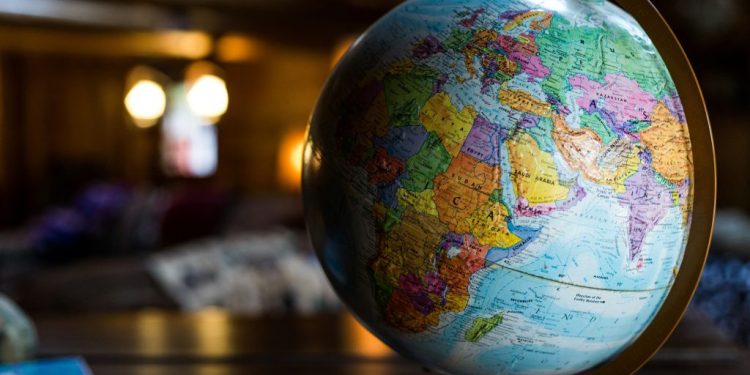Africa is pushing for an additional US$15bn in funding for the International Development Association, after The World Bank and its donors said they would replenish the IDA with US$105 billion, in addition to widespread reforms to the global financial architecture.
- More than 30 African states rely on the International Development Fund (IDF) to implement crucial projects and finance poverty alleviation strategies.
- Major donors to the fund including the UK, Germany, and Italy have slashed their obligations to the World Bank as they focus on restructuring their budgets and solving macroeconomic challenges, leading to a significant shortfall.
- African leaders are also requesting for additional input in the US$2.5 billion fund for the Private Sector Window as the World Bank concludes its IDA replenishment resolution in December this year.
A new study from the Africa Future Policies Hub also reveals that although progress has been made by the IMF and other international donors and multi-lateral development banks (MDBs) to streamline their funding models, lapses still remain in areas like climate finance, quota systems, debt resolution, and credit rating.
“The assessment shows little to no progress is being made on addressing the continent’s debt concerns, high cost of borrowing, and actual disbursements against financial commitments and pledges – putting into question transparency and accountability frameworks in the financing ecosystem,” Maria Nkhonjera, a Senior Policy Lead (Public Finance) at Africa Futures Policies Hub said.
Developing nations like Kenya have called upon the IMF to review its quota system. The board of Governors in the Bretton Woods institution approved a 50% increase in all quotas, which is about US$320 billion. Low-income countries will still receive a smaller share of the quota, with only 5.2% going into the continent.
Leaders in the continent have also called for the suspension or waiver of IMF surcharges which has aggravate already crushing debt burdens across the continent. They also want the institution to do away with ‘access limits policy’, citing it as a major barrier for accessing emergency financing facilities.
A third seat in the World Bank-IMF meetings was conferred to a Sub-Saharan African nation, as well as a permanent seat in the G20. This places the continent at a better position to influence executive decisions that are more favourable to local economies.
Unfair Credit Rating
The most pertinent agenda these reforms would seek to address will be high cost of refinancing debt. Concern still rages about interest rates charged by international finance bodies, spiking Africa’s borrowing costs by 5% more than global regions. Subsequently, many African nations are locked out of bond markets thus jinxing chances for investment.
The debt restructuring process pushed by the IMF and other multilateral finance institutions have also been regarded as disastrous to local economies. Champions for reform for low-income countries have urged international finance institutions to provide strategic debt relief measures that will not constrict the fiscal health of African nations.
The continent’s debt burden is further compounded by biased and subjective assessments of risk done by international credit rating agencies like Moody’s and Fitch. A UNDP analysis reveals that the continent could save US$74.5 billion if credit ratings were more objective. When the perception is bleak, African countries are forced to borrow at higher interest rates, repay debt with higher volumes, or defer loans which may be crucial for development.
In February, African heads of state resolved to establish an African Credit Rating Agency (ACRA) to provide a more realistic assessment of credit risk, which will not jeopardize lending and repayment.
Revamping climate finance
The African Future Policies Hub has also pinpointed that a lot needs to be done in ensuring climate-change mitigation funds are channeled to African countries in a more efficient manner. Due to bureaucratic processes and complex documentation in the many multilateral climate funds, funding remains a monunental task for low-income countries.
Africa receives only 20% of all climate adaptation funds globally despite being at the cusp of the ruinous effects of the greenhouse effect and other forms of environmental degradation. The finance gap, which stands at almost US$240 billion per year, slows down any substantial progress the world wishes to make in climate protection.
“Africa continues to benefit from international climate finance flows primarily in the form of loans, which are in many cases at market rate. This unsustainable trend needs to promptly reversed, particularly in the case of adaptation finance,” Dauoda Sembene from AfriCatalyst said.
Only Mozambique, Gabon, and Seychelles have reportedly benefited from debt facilities geared towards climate finance. Other countries are not likely to prioritize debt in their climate protection efforts. Despite many commitments by developed nations to mobilize grants for climate finance, pledges either remain unfulfilled or delayed.
“As we head to COP29 where financing decisions will be taken, it is important to also take stocking progress on the reforms that are said to help us generate the trillions of funding needed to finance climate action in developing countries,” Faten Aggad from African Future Policies Hub said.
“Despite positive developments, there is clearly significant work that is still needed especially reforms requested by African countries based on their realities,” Aggad added.




